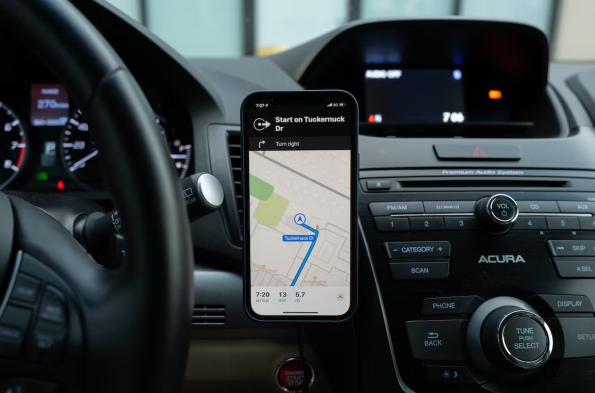The desire for safer travel experiences has become a paramount concern for globetrotters. Fortunately, advancements in technology have ushered in a new era of enhanced security and peace of mind for travelers. From bustling cities in Europe to the scenic landscapes of Vietnam, and even the charming corners of the UK, technology is playing a crucial role in safeguarding travelers. This article explores how various destinations are leveraging technology to ensure safer journeys and offers essential tips for travelers to navigate the modern landscape of travel security.
Ensuring Safer Travel in Europe
Europe remains a top choice for travelers worldwide. Recognizing the importance of tourist safety, many European destinations have invested in advanced surveillance systems. Paris and Barcelona have installed high-tech cameras in major tourist spots. Moreover, airports are utilizing biometric identification, to enhance security and streamline the screening process. Additionally, mobile apps equipped with real-time safety alerts are empowering tourists to stay informed and vigilant, particularly in crowded areas and during special events.
To complement these safety measures, travelers visiting Europe can further enhance their experiences by using eSIM Europe. With eSIM Europe, tourists can enjoy seamless connectivity and maintain communication with their loved ones, all while having the assurance of reliable network coverage throughout their travels.
Enhancing Security Measures in the UK
The United Kingdom is equally committed to prioritizing the safety of travelers. Integrated transportation security systems play a crucial role in monitoring public transportation networks. Furthermore, to combat theft and loss of belongings, RFID technology is employed for luggage tracking, providing travelers a higher chance of recovering lost items.
In addition to these safety measures, tourists can enhance their travel experiences in the UK with the use of eSIM UK. eSIM UK enables travelers to navigate with GPS and access travel apps with ease.
Vietnam: Embracing Technology for Safer Tourism
Vietnam is equally committed to embracing technology for safer travel experiences. In bustling cities like Hanoi and Ho Chi Minh City, smart traffic management solutions are being implemented to mitigate traffic-related risks and ensure smoother traffic flow. Electronic Visa and Immigration Systems have streamlined the entry process, reducing wait times and potential bureaucratic hassles for travelers. In remote areas, where traditional emergency services may not be readily accessible, GPS-based tourist safety apps are providing travelers with a lifeline in case of emergencies, instilling a sense of security and freedom to explore off-the-beaten-path locations. With the convenience of accessing these apps through eSIM Vietnam, adventurers can embark on their journeys with confidence, knowing that help is just a few taps away whenever they need it.
Global Initiatives for Travel Security
The need for international cooperation in ensuring travel security cannot be understated. Interpol, the global law enforcement organization, plays a pivotal role in coordinating efforts between countries to combat cross-border crimes, including those related to travel safety. Cybersecurity measures are also vital to protect personal information while traveling, as cyber threats continue to evolve. Collaborative efforts between governments and the travel industry are fostering a safer environment, with valuable data sharing and joint security initiatives being established to safeguard travelers.
Future Trends in Travel Security Technology
The future of travel security looks promising, with technology at the forefront of innovation. Artificial Intelligence and Machine Learning are poised to revolutionize risk assessment, enabling authorities to predict and prevent potential threats. Blockchain technology holds the potential to ensure secure and transparent travel transactions, reducing the risk of fraud and enhancing the trust between travelers and service providers. Biometric authentication, such as fingerprint and retina scanning, promises seamless and safe travel experiences, eliminating the need for physical documents and minimizing identity-related risks.
Tips for Travelers: Staying Safe with Technology
Travelers must also take proactive measures to safeguard themselves and their belongings. Keeping devices and data secure can prevent unauthorized access to personal information. Relying on trusted travel apps and websites for booking and navigation reduces the risk of falling victim to scams. Familiarizing oneself with local emergency services and contacts ensures quick assistance in case of emergencies.
Conclusion
Ensuring safer travel experiences is paramount. From the historic streets of Europe to the picturesque landscapes of Vietnam and the charming corners of the UK, technology is empowering travelers with enhanced security and peace of mind. With continued global initiatives and future innovations, the horizon of travel safety is promising. By combining technology’s advancements with individual vigilance, travelers can truly relish the joy of exploration, unhindered by unnecessary worries, and embark on memorable journeys that enrich their lives.

